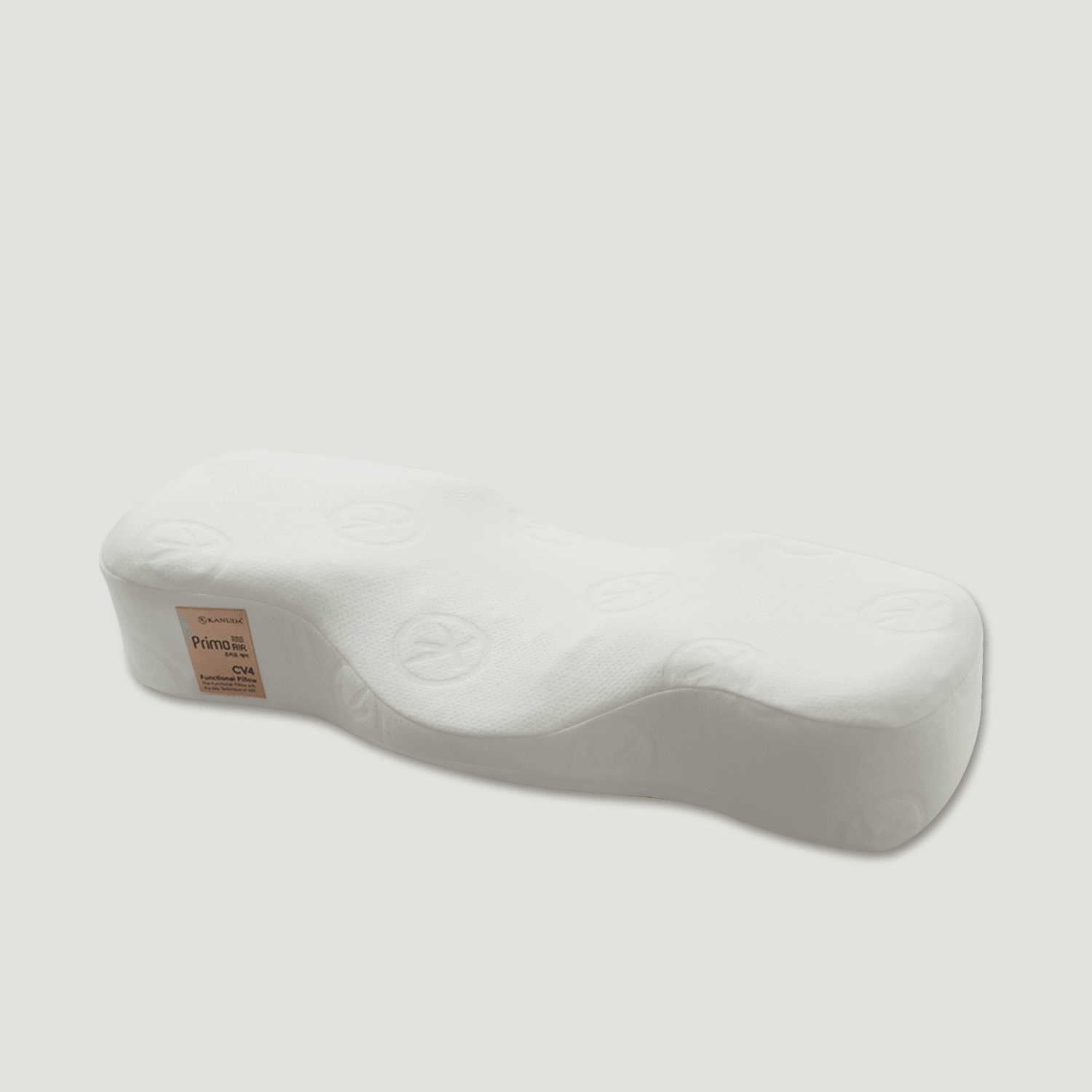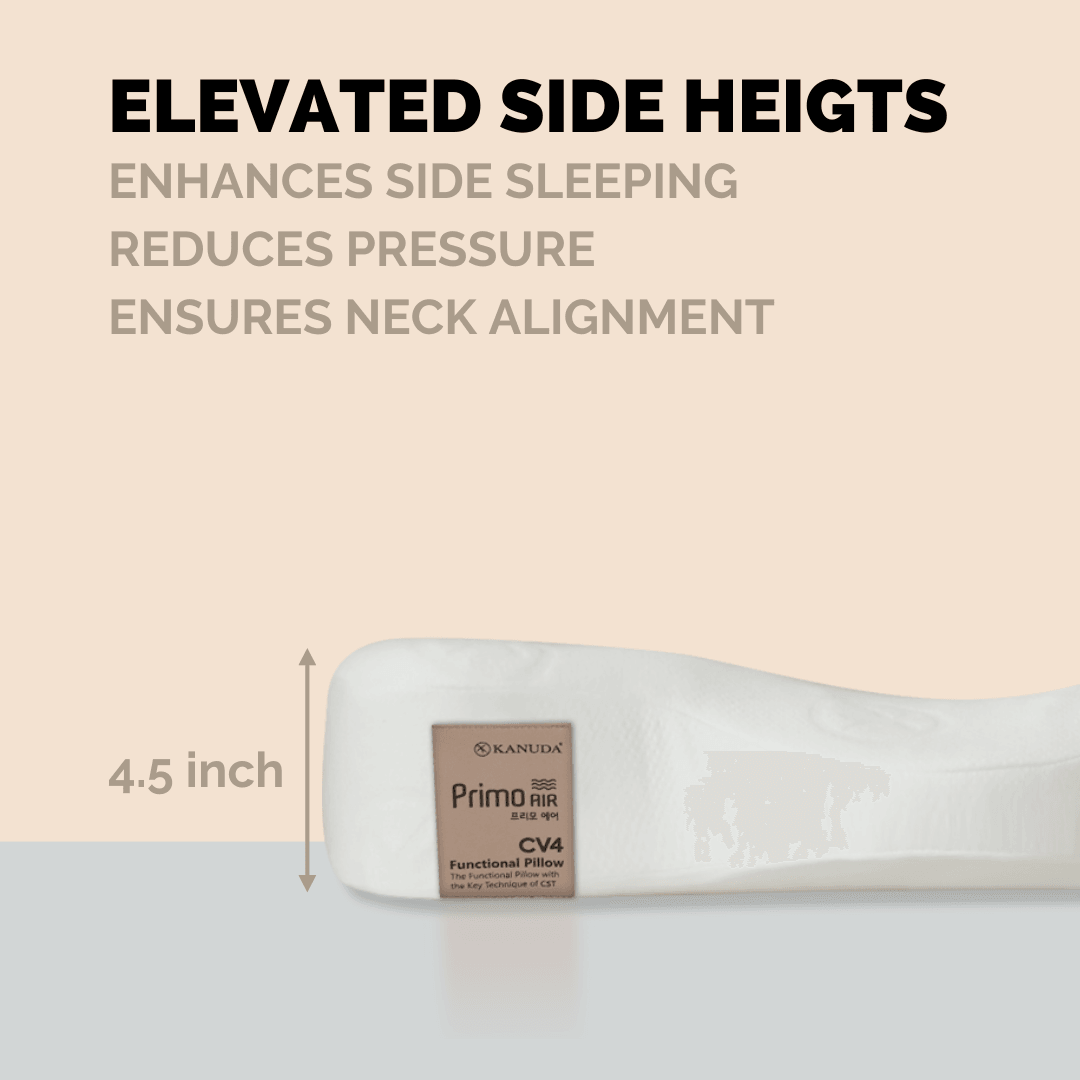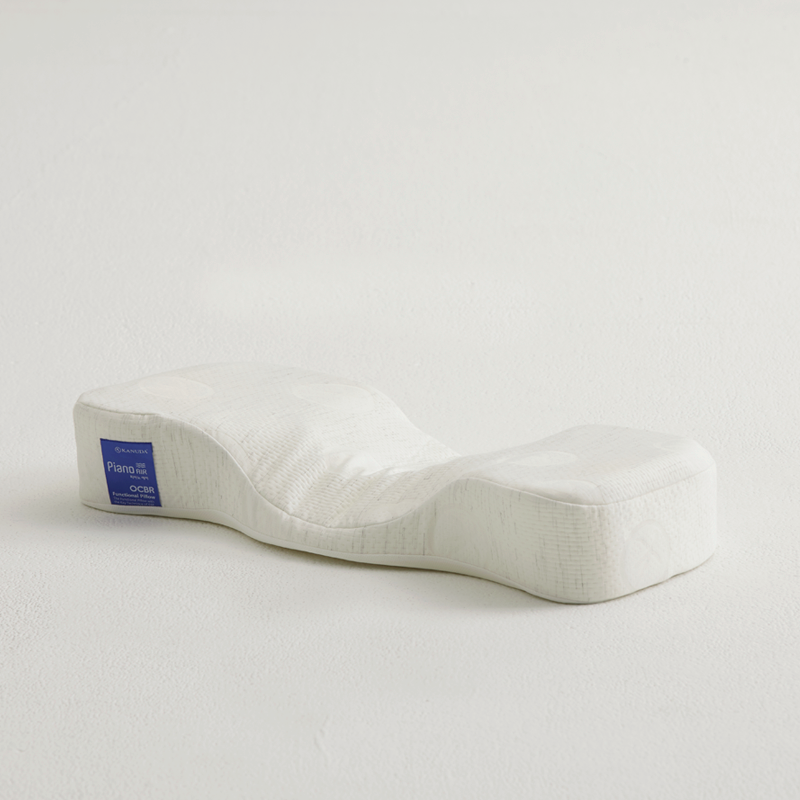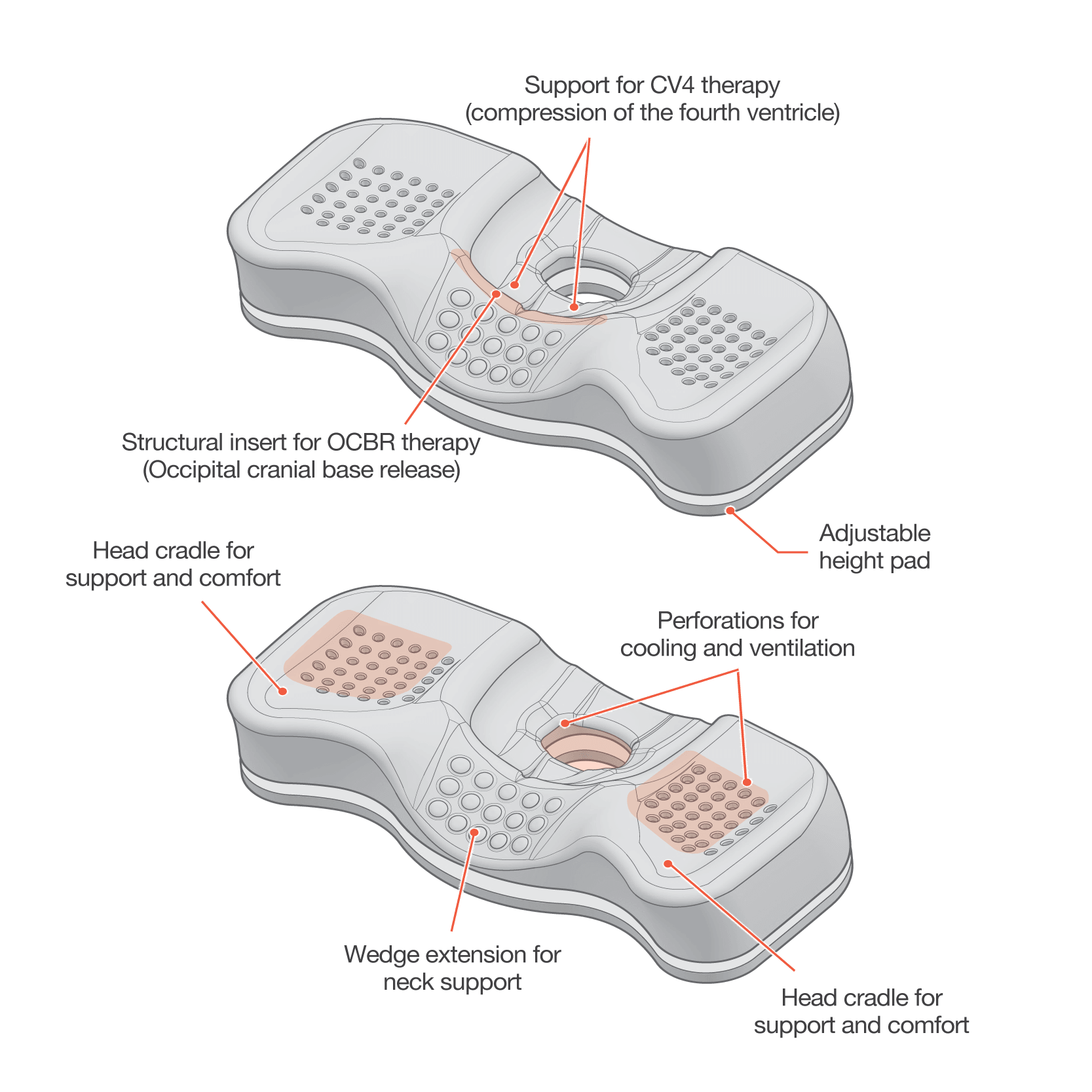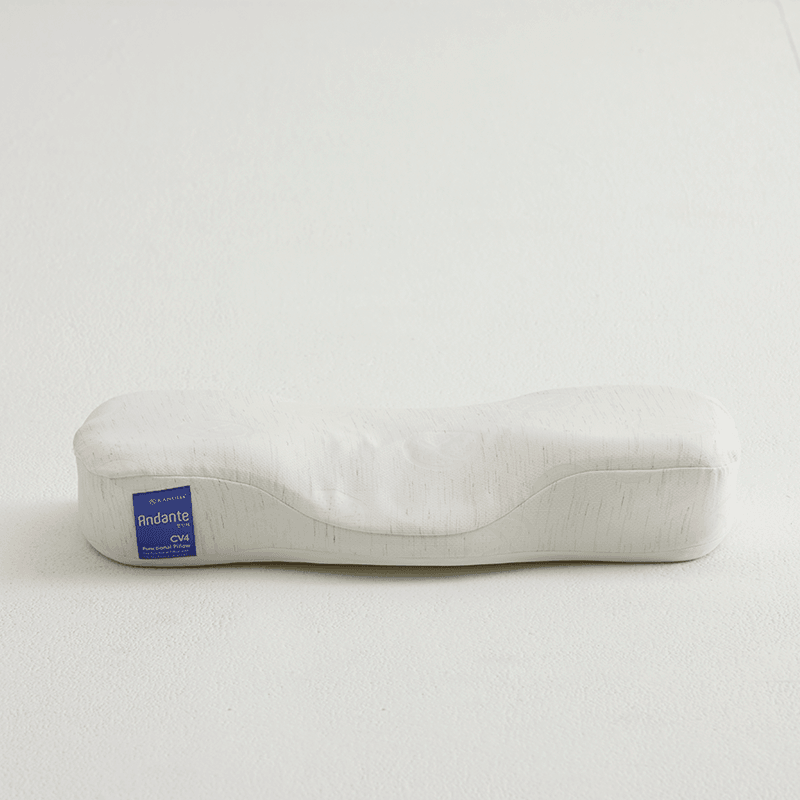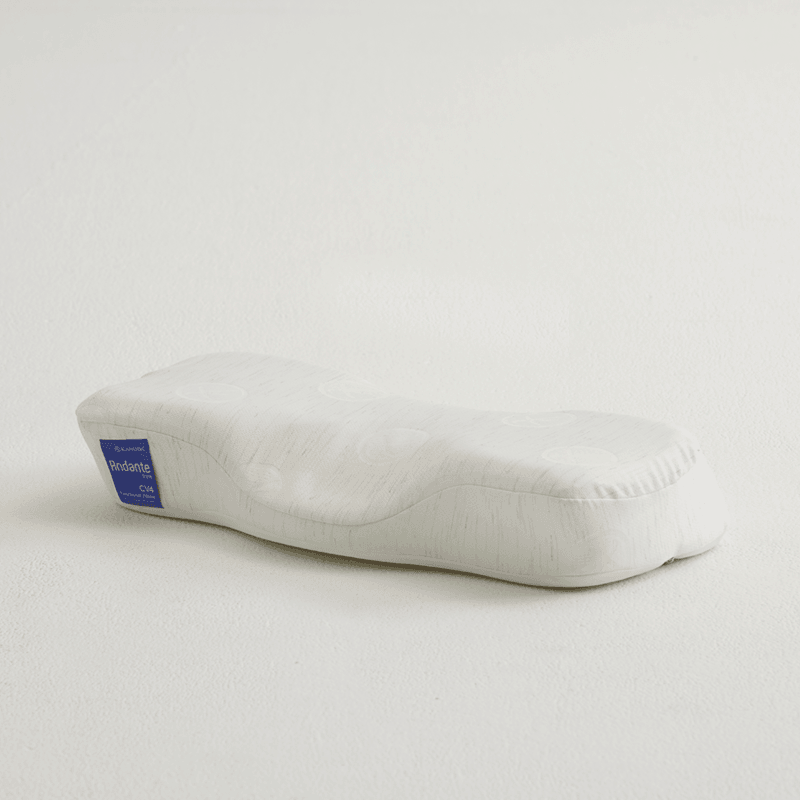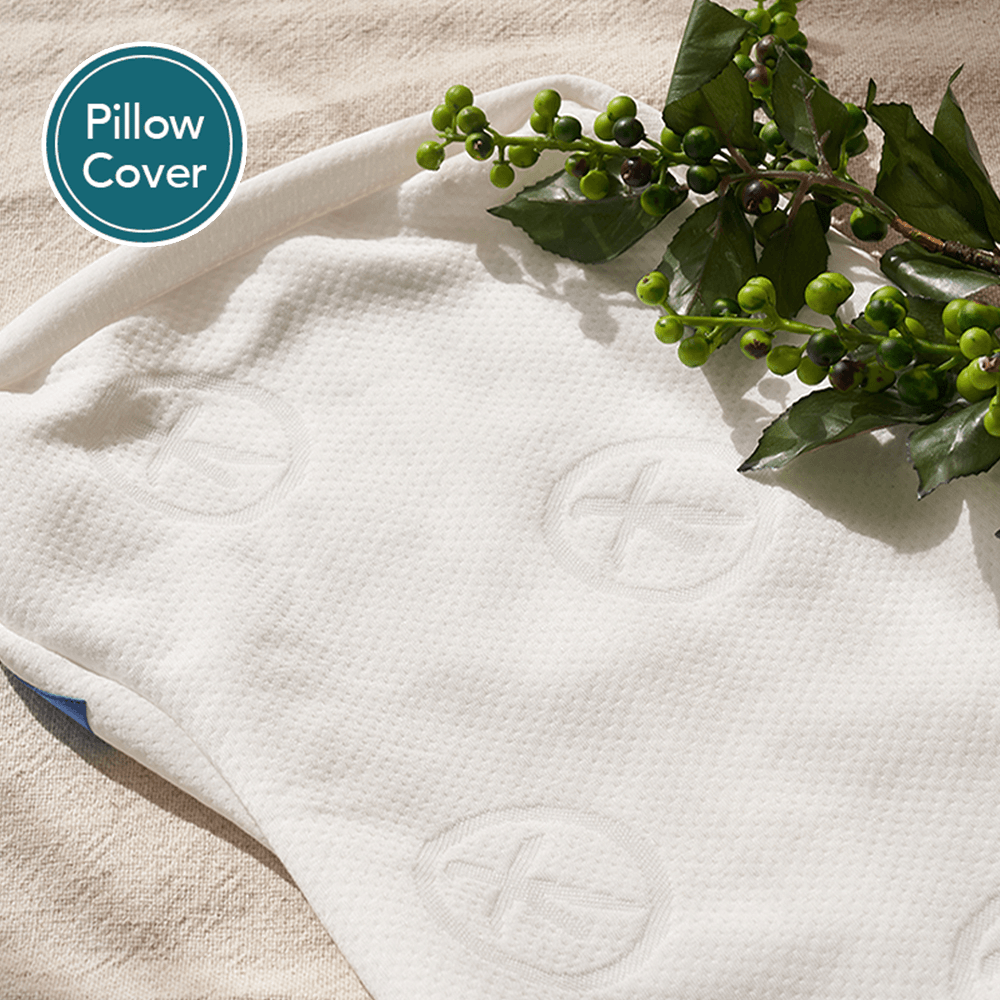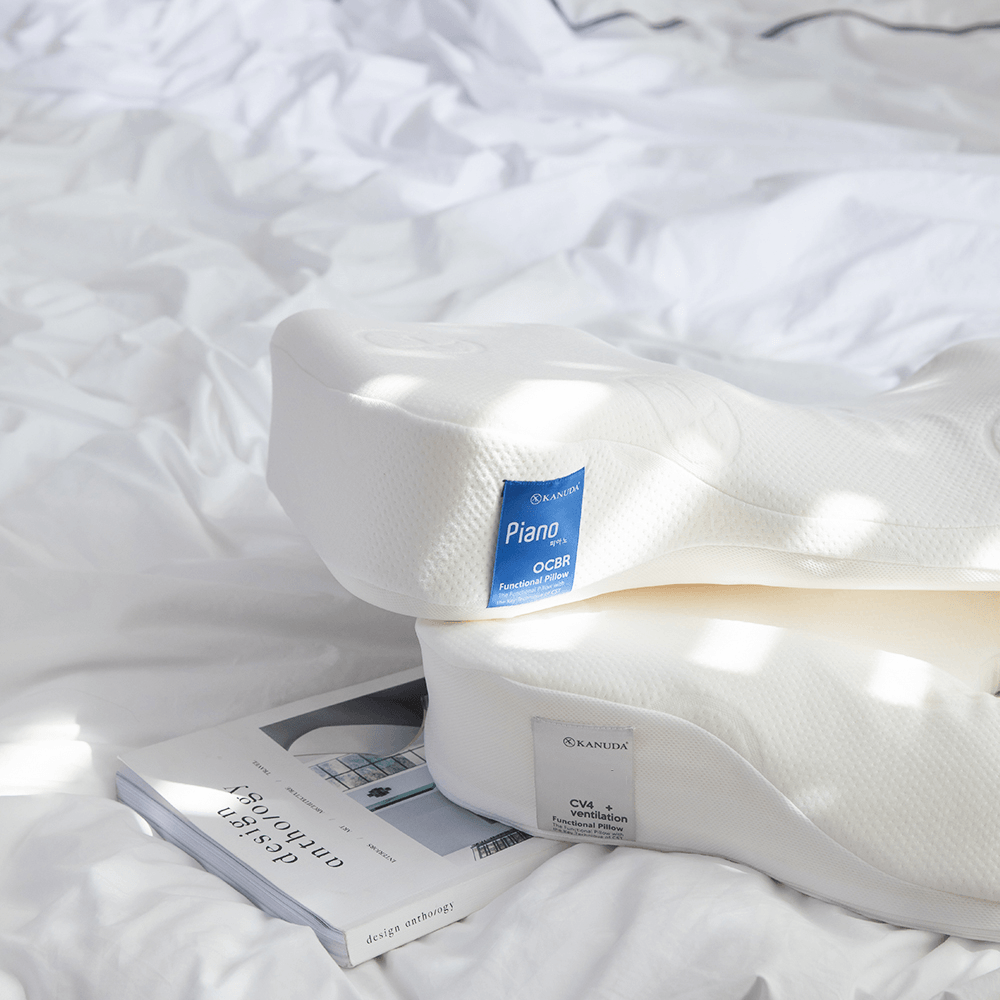If you often wake up with a sore neck or headache, your pillow might be the cause. Good head and neck support during sleep is important for preventing migraines and tension headaches. Let's look at some of the best orthopedic pillows that can help with these painful problems, leading to better sleep and feeling better overall.
Key Takeaways
- Orthopedic pillows can really help reduce migraines and tension headaches by keeping your neck and spine in the right position
- The Kanuda Primo Air, Piano Air, and Andante pillows have special features for different sleep styles and support needs
- Picking the right pillow for how you sleep is really important for comfort and stopping headaches
- Taking care of your pillow and replacing it when needed helps it keep supporting you and stays clean
- Using a good orthopedic pillow along with good sleep habits can really help reduce how often and bad your headaches are
Why Your Pillow Matters for Headache Relief
A good pillow does more than just feel comfy. It helps keep your spine straight while you sleep. By keeping your neck and spine in the right position, a good pillow can reduce tension in your neck muscles, which often causes headaches and migraines. Orthopedic pillows are made to support your head, neck, and shoulders really well, helping you sleep in a better position and wake up with less pain.
The right pillow can also help your blood flow better and reduce pressure points, which helps prevent headaches. By getting a high-quality orthopedic pillow, you're not just buying something to sleep on; you're helping your health and might have fewer and less intense headaches over time.
Top Picks for Migraine and Headache Relief
1. Kanuda Primo Air Pillow
The Primo Air Pillow is a great choice for people with migraines and tension headaches. Here's why it's so good:
- Special Shape: The pillow has a special shape that supports your neck and head really well, helping keep your spine straight all night.
- Adjusts to You: It can change to fit different sleeping positions. This is great if you move around a lot in your sleep.
- Good Materials: It's made with high-quality memory foam that's comfy and supportive. The foam keeps its shape for a long time.
- Stays Cool: The pillow has technology to help keep you cool, which is good if getting too hot gives you headaches.
- Can Change Height: You can adjust how tall the pillow is to fit you just right.
The Primo Air Pillow costs $249.00, but you can often find it for $229.00. It's 23.6 inches long, 11.8 inches wide, and 4.6 inches tall. It weighs 2.5 pounds, which is good for support but still easy to move. The pillow fits most normal pillowcases and gives the special support needed to help with headaches.
2. Kanuda Piano Air Pillow
The Piano Air Pillow is another great option for headache relief. It's made to help with neck pain, which often leads to headaches. Here's what makes it special:
- Special Shape: It has a steeper curve that keeps your neck in a good position all night. This helps take pressure off your spine and can reduce neck-related headaches.
- Can Change Height: You can add or remove an extra piece to make the pillow taller or shorter. This helps you find the perfect height for your body and how you like to sleep.
- Stays Cool: It's made with materials that help keep you cool while you sleep. This is good if getting too hot makes your headaches worse.
- Spreads Out Pressure: The pillow's design helps spread out your weight evenly, which can reduce neck tension and headaches.
- Lasts a Long Time: It's made with good materials that keep supporting you night after night for a long time.
The Piano Air Pillow costs $249.00. It's 23.6 inches long, 11.8 inches wide, and 4.1 inches tall. It weighs 3.0 pounds, which is a bit heavier than the Primo Air. This extra weight helps it stay in place while you sleep, so you don't have to keep moving it around, which could wake you up and cause headaches.
3. Kanuda Andante Pillow
If you like a firmer pillow, the Andante Pillow is a great choice. It's especially good for people who often get tension headaches. Here's what's special about it:
- Very Firm: The Andante Pillow is much firmer than other pillows. This gives strong support, which is good if you need a lot of help keeping your neck and head steady to prevent headaches.
- Good Shape: The pillow has a smooth, gentle curve that makes it easy to change positions while you sleep. This helps keep your spine straight no matter how you sleep, which can reduce the chance of waking up with a tension headache.
- Helps Muscles Relax: The firm support is made to help your neck muscles relax. By giving steady, firm support, it helps reduce muscle tension that can often cause headaches.
- Spreads Out Pressure: Even though it's firm, the Andante Pillow spreads out pressure across its surface. This helps prevent sore spots that could cause discomfort or pain.
- Lasts a Long Time: Because it's made to be firm, it keeps its shape and supportive qualities for a long time, giving long-lasting relief for people with headaches.
The Andante Pillow costs $269.00. It's about the same size as the other Kanuda pillows, but its firmer feel makes it different. It costs more because it's made specially for people who need extra support, especially those who often get tension headaches or are recovering from neck injuries.
Choosing the Right Pillow for Your Sleep Style
How you sleep is really important when picking a pillow that will help with headaches. Different sleep positions need different kinds of support for your head and neck. Understanding this can help you pick the pillow that will keep your spine straight and reduce the chance of waking up with a headache. Here's a guide to help you choose:
Side Sleepers
Need a higher pillow to fill the space between shoulder and ear. Try the Primo Air or Piano Air.
Back Sleepers
Do well with a medium-height pillow. The Andante or Piano Air could be good choices.
Stomach Sleepers
Need a very thin pillow or no pillow at all. Consider using a small pillow under your hips instead.
Side Sleepers: If you sleep on your side, you need a pillow that fills the space between your ear and shoulder, keeping your spine straight. The Primo Air or Piano Air pillows are great for side sleepers because you can adjust their height and they have a special shape. These pillows can stop your head from tilting down or up, which can cause neck strain and headaches.
Back Sleepers: If you sleep on your back, a medium-height pillow that supports the natural curve of your neck is best. The Andante pillow, which is firmer, can be really good for back sleepers. It helps keep the curve of your neck in the right position, which can reduce neck pain and headaches. The Piano Air, which you can adjust the height of, can also be set up just right for back sleepers.
Stomach Sleepers: Sleeping on your stomach can make it hard to keep your spine straight and isn't usually good for people who get headaches. But if you do sleep this way, you need a very thin pillow or no pillow at all under your head. Instead, try putting a thin pillow under your hips to help keep your spine straighter. While Kanuda doesn't make pillows just for stomach sleepers, using the Piano Air or Primo Air set to their lowest height might be the best choice if you must use a pillow in this position.
Taking Care of Your Orthopedic Pillow
To make sure your orthopedic pillow keeps helping with headaches, you need to take good care of it. Here are some tips:
- Clean Regularly: Wash the pillow cover at least every two weeks to remove sweat, oils, and things that might cause allergies. Most Kanuda pillow covers can be washed in a machine, but always check the label to be sure.
- Fluff Daily: Gently fluff your pillow each morning to help it keep its shape and spread out the filling evenly. This is especially important for memory foam pillows to make sure they fully expand after you use them.
- Rotate the Pillow: If you can, turn your pillow around every few weeks. This helps it wear evenly and last longer.
- Sun Exposure: Sometimes put your pillow in direct sunlight for a few hours. This can help get rid of moisture and smells, and naturally clean the pillow.
- Store Properly: When you're not using your pillow, keep it in a cool, dry place. Don't squish it for long periods, as this can change its shape and how well it supports you.
- Replace Regularly: Even if you take really good care of it, you should replace your orthopedic pillow every 1-2 years, or sooner if it's losing its shape or support. A pillow that doesn't keep its shape can make you sleep in a bad position and might cause headaches.
For extra protection and comfort, think about getting a Kanuda Mulberry Fiber Pillowcase. These pillowcases are really soft and have some extra benefits:
- Very Clean: Mulberry fiber naturally fights bacteria, helping keep your pillow cleaner for longer.
- Keeps Temperature Just Right: The fabric helps keep you cool in summer and warm in winter, which can help prevent headaches.
- Good for Skin and Hair: The smooth texture of mulberry fiber reduces rubbing, which can be good if you have sensitive skin or worry about your hair breaking.
Other Ways to Help with Headaches at Night
While a good orthopedic pillow is really important for preventing and managing nighttime headaches, there are other things you can do to sleep better and have fewer headaches:
- Make Your Bedroom Better for Sleep:
- Keep your room dark: Use thick curtains or an eye mask to block out light, which can mess up your sleep and maybe cause headaches.
- Keep the room cool: Try to keep your bedroom between 60-67°F (15-19°C), because being too hot can make you uncomfortable and cause headaches.
- Make it quiet: Use earplugs or a white noise machine to cover up noises that might wake you up.
- Have a Regular Sleep Schedule:
- Go to bed and wake up at the same time every day, even on weekends. This helps your body's internal clock work better, which might reduce headaches.
- Try to get 7-9 hours of sleep each night so your body has enough time to rest and recover.
- Don't Use Screens Before Bed:
- Avoid looking at bright screens (phones, tablets, computers) for at least an hour before bedtime. The blue light from these devices can mess up your body's production of melatonin, a hormone that helps you sleep.
- If you have to use devices, try using apps or glasses that filter out blue light to reduce how much it affects your sleep.
- Do Relaxing Things Before Bed:
- Do gentle stretches before bed to release tension in your neck and shoulders.
- Try relaxing your muscles one by one or doing deep breathing exercises to help calm your mind and body before sleep.
- Think about trying meditation or mindfulness to reduce stress and worry, which can contribute to headaches.
- Drink Enough Water:
- Drink plenty of water during the day, but drink less in the evening so you don't have to get up to use the bathroom at night.
- Not drinking enough water can cause headaches, so it's important to stay hydrated.
- Be Careful What You Eat:
- Don't have caffeine or alcohol close to bedtime, as these can mess up your sleep and maybe trigger headaches.
- Be aware of foods that might cause headaches for you, and don't eat them in the evening.
When to Talk to a Doctor
While good sleep habits and using an orthopedic pillow can really help reduce headaches, sometimes you need to talk to a doctor. It's important to know when your headaches might be a sign of something more serious or need extra treatment. Here are some signs that it's time to see a doctor:
- How Often and How Bad: If you're getting headaches more than 15 days a month, or if they're so bad they stop you from doing normal things, it's time to see a doctor.
- Changes in Your Headaches: If you notice your headaches are happening more often, getting worse, or feeling different than usual, this could mean there's a problem that needs to be checked out.
- New Symptoms: If your headaches come with new or unusual symptoms like changes in your vision, numbness, weakness, or feeling confused, see a doctor right away.
- Over-the-Counter Medicine Doesn't Help: If regular pain medicine you can buy at the store doesn't help your headaches, a doctor might be able to find out why and suggest better treatments.
- Sleep Problems: If your headaches are making it hard to sleep, or if you're having other sleep problems along with headaches, a sleep specialist might be able to help.
- Affecting Your Life: When headaches start to make it hard to work, affect your relationships, or just make life less enjoyable, it's really important to get professional help.
Remember, a doctor can do a full check-up, maybe including tests of your nervous system or scans if needed. They can also offer different kinds of treatments, from prescription medicines to lifestyle changes or sending you to specialists like neurologists or pain management experts. Don't wait to see a doctor if you're worried about your headaches – getting help early can often lead to better management and make your life better overall.
Conclusion: Finding Your Perfect Pillow
Picking the right orthopedic pillow can really help reduce how often you get migraines and tension headaches. Finding your ideal pillow might take some tries, but it's worth it for the benefits. Whether you choose the Primo Air, Piano Air, or Andante, the most important thing is to pick a pillow that keeps your neck and spine straight all night.
Remember that everyone is different. How you like to sleep, your body type, and what causes your headaches all matter when choosing a pillow. It's normal to need some time to get used to a new pillow, so give it a few weeks before you decide if it's right for you.
Besides choosing the right pillow, having good sleep habits and making your bedroom good for sleep can really help reduce headaches. Pay attention to things like how warm your room is, how much light there is, and what you do before bed. These things, along with the right pillow, can really help prevent and manage headaches.
If you keep having lots of headaches or really bad ones even after trying these things, don't hesitate to talk to a doctor. They can give you more ideas and other treatments to help you feel better.
Taking care of how you sleep is taking care of your health. With the right support and care, you can look forward to sleeping better and having fewer headaches, so you wake up feeling refreshed and ready for the day.
Ready to start sleeping better and having fewer headaches? Check out the full range of Kanuda pillows to find the perfect one for you. Here's to better sleep and mornings without headaches!



